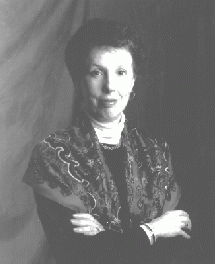Page 35
[Begin Tape 1, Side A]
Moorhus: Let's go back to the period 1971 to 1975. You were working at the Minneapolis Star and getting acquainted with Nick Coleman. Then in 1975 you and Nick were married and you were named city editor at the Star. I'd like you to talk more about that period and then how you handled your career and being a political wife.
Howell: I was just at the peak—when I married my husband in June 1975, I was just at the peak, or just at the jumping-off place, for my career really going someplace. I had been a good reporter and I had started an action line column [Column 1]. I had been the president of the union, and I had done some leadership things, but not all that much. When I became city editor, that was the big move forward in my career. I became city editor in the same couple of months' period that I married my husband. So we'd had a long discussion at the paper about me becoming city editor and being married to one of the state's most prominent politicians, and my managing editor had said, "Deborah is who I want. We'll make this work. She just won't directly edit stories to do with her husband." And I certainly agreed with that; it made good sense. But after all these years as a reporter—and I had gotten a taste of editing in starting this column and having seven or eight people working for me—I was ready for this big leap. But I want to tell you, we bought a house, got married, and I became city editor in a one-month period, and moved from Minneapolis to St. Paul. It was a big psychic shock.
My husband was very proud of my career, and he liked the fact he was married to a city editor. That was important to him. He had fallen in love with me when I was a reporter, because he knew what kind of style of person and everything I was. So that was no shock to him. But trying to juggle being a political wife and a journalist was often very difficult. It made for interesting conversations on occasion at home. We used to laugh that the biggest argument we'd ever had was over whether conference committees ought to be open or closed to the press. [Laughter.] He told me usually what was going on, and I usually kept his confidences.
Early in our marriage once he told me about some big story (I can't remember what it was now) and made me promise I wouldn't tell anybody, and the next morning I went right in to the paper, I couldn't help myself, and I called the capital reporter and said, "I heard this tip. Why don't you follow this story." I didn't, obviously, mention him. Of course, we had the story in the paper by the final edition that afternoon. He called me up and he was so pissed. And he was right to be pissed; I had violated a confidence. I said, "I'm sorry. I just couldn't help myself. God, I shouldn't have done it. You're right." So we made a deal that all of our conversations always were off the record and that I would tell him if I wanted to follow up something, and that never happened again.
But years later, for a week he considered running for Congress, decided not to, and then told me about it. I said, "How could you do this for a week and not even tell me about it? I'm your wife. Think of the fallout on me." He said, "I wasn't sure I could trust you." And so that was the arrow in my heart he had been waiting five years to deliver. I said, "Uggghhh!" [Laughter.] Then he ran for the U.S. Senate, actually.

